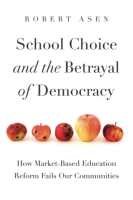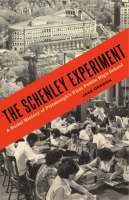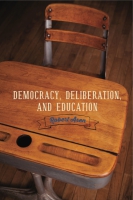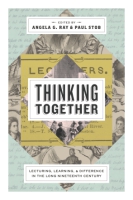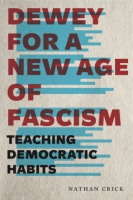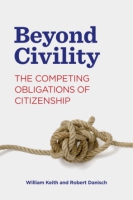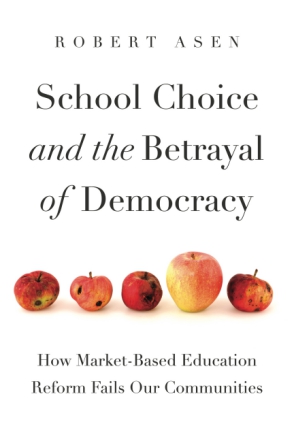
School Choice and the Betrayal of Democracy
How Market-Based Education Reform Fails Our Communities
Robert Asen
School Choice and the Betrayal of Democracy
How Market-Based Education Reform Fails Our Communities
Robert Asen
“The affirmative and affirming vision of School Choice and the Betrayal of Democracy is one that rejects the ‘neutrality’ of ‘the market,’ and the habit of ignoring problems such as economic coercion, in favor of a world of interconnection. Asen’s elegant analysis of the (a)morality of neoliberalism is sure to be heavily cited for years to come.”
- Description
- Reviews
- Bio
- Table of Contents
- Sample Chapters
- Subjects
Arguing that democratic communities and public education need one another, Asen examines the theory driving privatization, popularized in the neoliberalism of Milton and Rose Friedman, as well as the case for school choice promoted by former secretary of education Betsy DeVos and the controversial voucher program of former Wisconsin governor Scott Walker. What Asen finds is that a market-based approach holds not just a different view of distributing education but a different vision of society. When the values of the market—choice, competition, and self-interest—shape national education, that policy produces individuals, Asen contends, with no connections to community and no obligations to one another. The result is a society at odds with democracy.
Probing and thought-provoking, School Choice and the Betrayal of Democracy features interviews with local, on-the-ground advocates for public education and offers a countering vision of democratic education—one oriented toward civic relationships, community, and equality. This book is essential reading for policymakers, advocates of public education, citizens, and researchers.
“The affirmative and affirming vision of School Choice and the Betrayal of Democracy is one that rejects the ‘neutrality’ of ‘the market,’ and the habit of ignoring problems such as economic coercion, in favor of a world of interconnection. Asen’s elegant analysis of the (a)morality of neoliberalism is sure to be heavily cited for years to come.”
“School Choice and the Betrayal of Democracy deals deftly with the pressing question of how well democratic practices and public advocacy hold up against the structures of neoliberalism and its valorization of market logics. This book uses both theoretical and empirical evidence to highlight the limitations of market logics for collective projects and suggests that we recommit ourselves to the difficult work of local political practice.”
Robert Asen is Stephen E. Lucas Professor of Rhetoric, Politics, and Culture at the University of Wisconsin–Madison. He is the author of numerous books, including Democracy, Deliberation, and Education, also published by Penn State University Press.
Acknowledgements
Introduction: Competing Discourses and Contrasting Visions
of Education
1. Democracy as a Way of Life: John Dewey’s Vision for Individuals and Their Relationships
2. Markets as a Way of Life: The Friedmans’ Vision for Individuals and Their Relationships
3. Competition and Innovation in the Education Industry: Betsy DeVos’s Campaign for School Choice
4. Growing Markets, Diminishing Democracy: The Statewide Expansion of Vouchers in Wisconsin
5. Connecting Schools and Communities: Local Advocacy for Public Education
Conclusion: Means, Ends, and Public Education
Notes
Bibliography
Index
Download a PDF sample chapter here: Introduction
Mailing List
Subscribe to our mailing list and be notified about new titles, journals and catalogs.
